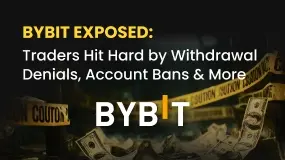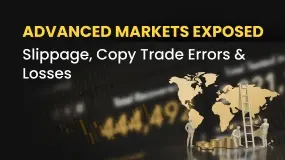Reveal the true cost of forex trading fees
Abstract:Potential profits and market opportunities are usually the most focused factors for traders in the forex market. This article focuses on explaining how small fees add up over time and affect profitability.

Potential profits and market opportunities are usually the most focused factors for traders in the forex market. This article focuses on explaining how small fees add up over time and affect profitability.
Breaking Down Forex Trading Fees
Forex brokers typically earn money through several spreads, commissions, swap fees, and additional fees.
Spreads: The difference between the bid and ask price of a currency pair.
Commissions: A fixed fee per lot traded, usually in ECN or low-spread accounts.
Overnight/Swap Fees: Charged when positions are held overnight.
Additional Fees: Including withdrawal charges, inactivity fees, or currency conversion costs.
How Fees Add Up in Practice: Example in Reality
If a trader decided to invest in Exness, Exness offers tight spreads as low as 0.1 pips on EUR/USD in its Raw Spread account, but charges a commission of $7 per lot. A scalper executing 50 trades in a month (1 lot each) would pay:
- $7 x 50 trades = $350 in commissions alone.
- If spreads average 0.1 pips, that adds roughly another $50.
- Total monthly cost: $400, excluding swaps.
At first glance, commission-based accounts may seem expensive, but depending on your trading style, they can save you money over time.
The Hidden Impact of Overnight Fees
For swing traders, overnight swaps can become a silent cost. For example, a forex broker charges positive or negative swaps depending on interest rate differentials. Holding a standard 1-lot EUR/USD trade for 10 nights could cost around $40–$60 in swaps, depending on market conditions. This may not seem much, but compounded over a year, it adds hundreds of dollars.
How Fees Affect Profitability
Imagine a trader generates an average monthly profit of $1,500. If trading fees account for $400–$700 of costs, thats 27–47% of profits lost to fees. Over a year, this could mean thousands of dollars in reduced net returns.
Particularly, High-frequency traders, though less affected by spreads, cannot ignore swaps and hidden costs.
Minimizing Forex Trading Costs
- Choose the Right Broker for Your Strategy – WikiFX offers a good way for traders to choose a suitable broker. Traders may benefit from low-spread, commission-based brokers, as WikiFX offers broker details.
- Compare Swap Rates – Especially for swing or position trading.
- Watch for Hidden Fees – Withdrawal charges and currency conversions can reduce net gains.
Conclusion
The true cost of forex trading fees is important because it contains some small fees that you may ignore initially. What seems like a fraction of a pip or a minor overnight charge can accumulate into thousands over time. Traders who want to maximize profitability must go beyond headline spreads and compare the all-in costs across brokers.
By revealing and understanding these hidden costs, traders can make informed choices, align with the right broker, and ultimately keep more of their profits.

Read more

Bybit Exposed: Traders Hit Hard by Withdrawal Denials, Account Bans & More
Is your forex trading experience with Bybit far from ideal? Do you continue to face withdrawal denials? Does Bybit ban your account without any reason? Have you failed to receive the reward on winning the trading challenges? We must say, you have made the wrong move by partnering with Bybit, which has been scamming traders. In this article, we will share multiple complaints that traders have made against the scam forex broker. Keep reading!

Advanced Markets Exposed: Slippage, Copy Trade Errors & Losses
Have you made profits using the copy trade strategy implemented by Advanced Markets? But did the withdrawal stop as the company cited questionable trades? Have you failed to receive any email from this broker regarding the investigation it claimed? Are high slippages and trade losses regular with Advanced Markets? These are nothing but scams. Many traders have openly criticized the UK-based broker for these suspicious forex trading activities. In this article, we will share trader comments against the broker. Keep reading!

Plus500 Launches $90 Million Share Buyback Programme
Plus500 has officially launched a $90 million share buyback programme. The initiative forms part of the company’s wider plan to distribute $165 million to investors.

SimpleFX Scam Alert: Here’s Why You Should it?
While you are free to choose the broker that suits your needs, it is crucial to remain cautious during the selection process. Many brokers may appear genuine at first glance, but in reality, they operate fraudulently. SimplyFX is one such broker that raises serious concerns. Read this article to understand why we consider SimplyFX to be a potential scam broker.
WikiFX Broker
Latest News
European leaders to join Zelensky at White House meeting with Trump
Where is ThinkMarkets Broker Licensed to Operate?
Plus500 Launches $90 Million Share Buyback Programme
BlackBull Markets and CopyTrade Market Formalise Integration
IG Japan Ends Discount Program on Aug 17
Strongest Level for MYR Coming Soon?!
Trader in Thane Duped of ₹4.11 Cr in Online Scam
Bybit Exposed: Traders Hit Hard by Withdrawal Denials, Account Bans & More
Fraud Alert: FCA Warns Against 10 Unlicensed Brokers
An In-depth Guide to Forex Spread Calculation
Rate Calc

